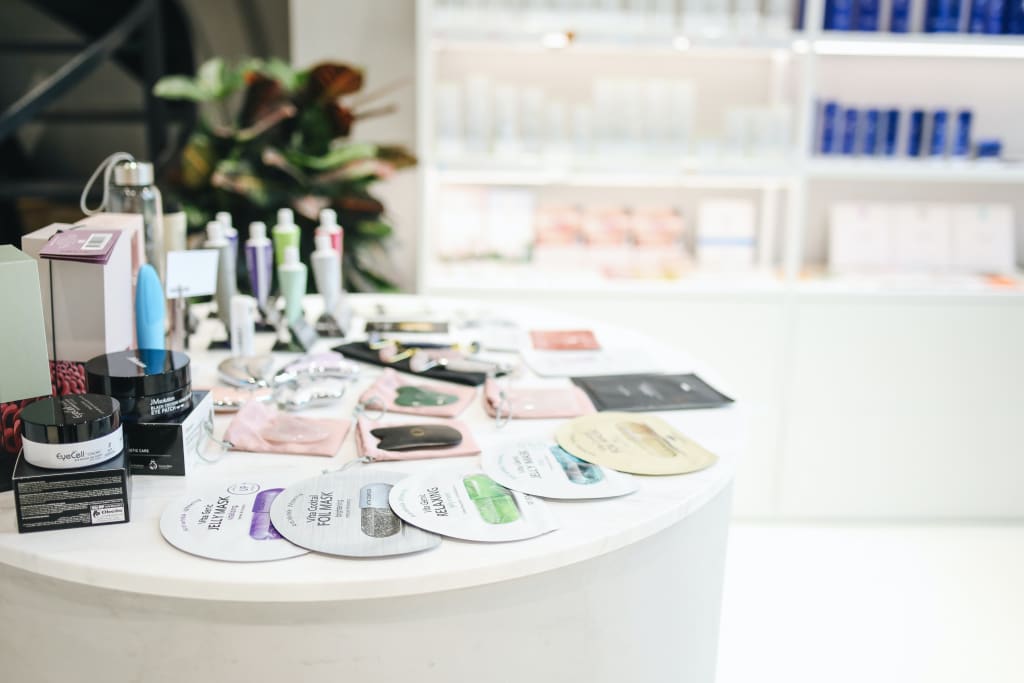Consumers in Asia, take note! What will the Asian skincare market see next?
Sensitive skincare in the Asian market.

Over the following five years, the ASEAN Sensitive Skin Care Market is anticipated to grow at a CAGR of 11.38%.
Customers are drawn to a variety of skincare products due to rising disposable income, aggressive marketing campaigns, and the introduction of cutting-edge items by manufacturers. As consumers learn more about skin conditions and treatments, they are using skincare products early, which is boosting market growth. A substantial portion of the skincare products market is made up of anti-aging products, which are becoming more and more popular among women. The ASEAN region is the most attractive market for skincare products because to the high prevalence of sensitive skin syndrome, which causes sensory responses including itching, burning, stinging, tightness, and dryness among customers.
Eczema or dermatitis is a typical underlying cause of sensitive skin syndrome. The region's need for sensitive skincare products is increasing as businesses build new facilities in these nations and provide organic and new goods. The demand for sensitive skincare products in the ASEAN region is anticipated to increase because to the rising popularity of natural, organic, and halal skincare products in nations like Malaysia and Indonesia. Organic sensitive skin care items composed of natural materials without the use of chemicals provide a number of advantages. They are made using organically grown ingredients that are free of chemicals, synthetic residues, and genetically engineered components.
Moreover, organic sensitive skin care products provide an effective protective agent for all ages, genders, and skin types. Therefore, consumers prefer organic sensitive skin care products, which eventually increases demand for sensitive skin care products. Furthermore, sensitive skin care products are suitable for babies, people with sensitive skin and allergies, and those with chronic skin conditions. Therefore, consumers prefer sensitive skin care products nowadays.
Market Trends for Sensitive Skin Care in ASEAN
An overwhelming preference for international brands over domestically produced goods
Consumers in ASEAN nations, particularly in Malaysia and Indonesia, favour imported cosmetics over domestically produced ones. Due to the high quality and accessibility of these products, the majority of the people in these nations prefers international brands. The demand for imported niche and premium brands of sensitive skincare products has increased as consumer understanding of skincare and purchasing power has grown. As a result, the market for sensitive skin care products is being stimulated. International brands also sell organic skincare items for delicate skin. Due to this issue, customers now prefer organic skincare products over ones made of synthetic ingredients. The producers in the market have been updating their products to take advantage of this expanding interestd and ncreasing their product options by launching a comprehensive range of organic sensitive skincare products including plant-based, clean-label ingredients, with claims like as ‘organic,’ ‘vegan,’ ‘natural,’ ‘chemical-free’ and ‘cruelty-free.’
The demand for imported skincare continues to increase, along with the need for affordable premium cosmetic brands from middle-class consumers in the ASEAN region. To face competition with imported products, the government, through the ministry of industry, provides incentives for domestic-made cosmetics companies, which along with others, are given in the form of tax allowances and exemption from import duty on machinery imports.
The most often used purchase channel is specialty stores.
At specialty shops, the mass-market personal care brands from multinational behemoths like Unilever and Johnson & Johnson are fairly common and freely accessible. Shopping at speciality stores is therefore easy for those looking for sensitive skincare items. Additionally, consumers are increasingly choosing specialist retailers to purchase sensitive skincare products since these outlets offer better customer service, quality products, and the ability to compare different sensitive skincare products side by side. Despite adopting such a specialised strategy, specialty shops nevertheless face fierce competition from internet retailers in terms of product selection and alluring discount opportunities.
Speciality shops also provide increased visibility and a large selection of sensitive skin care items, such as creams, cleansers, toners, etc. For products to treat acne, rosacea, and psoriasis, some stores have a special department. Sales of sensitive skin care products in specialty stores across the region have increased as a result of the tailored strategy and the tailored products catering to the targeted consumers. Additionally, speciality shops provide cutting-edge sensitive skin care product variations.
Analysis of the ASEAN Sensitive Skin Care Market's Rivals
The ASEAN skincare products market is fragmented and has both domestic and foreign rivals. Derma 365, Johnson & Johnson, Laboratoires Pierre Fabre, Galderma S.A., and Beiersdorf AG are a few prominent market participants. To maintain their market positions, these players are increasing their marketing and R&D expenditures as well as widening their distribution networks. In addition, international market participants are concentrating on utilising revenue-generating opportunities presented by Asia-Pacific's emerging markets, such as Thailand, Indonesia, and Vietnam.
Reference: (https://www.researchandmarkets.com/reports/5012479/asean-sensitive-skin-care-market-growth)
About the Creator
Enjoyed the story? Support the Creator.
Subscribe for free to receive all their stories in your feed. You could also pledge your support or give them a one-off tip, letting them know you appreciate their work.





Comments
There are no comments for this story
Be the first to respond and start the conversation.